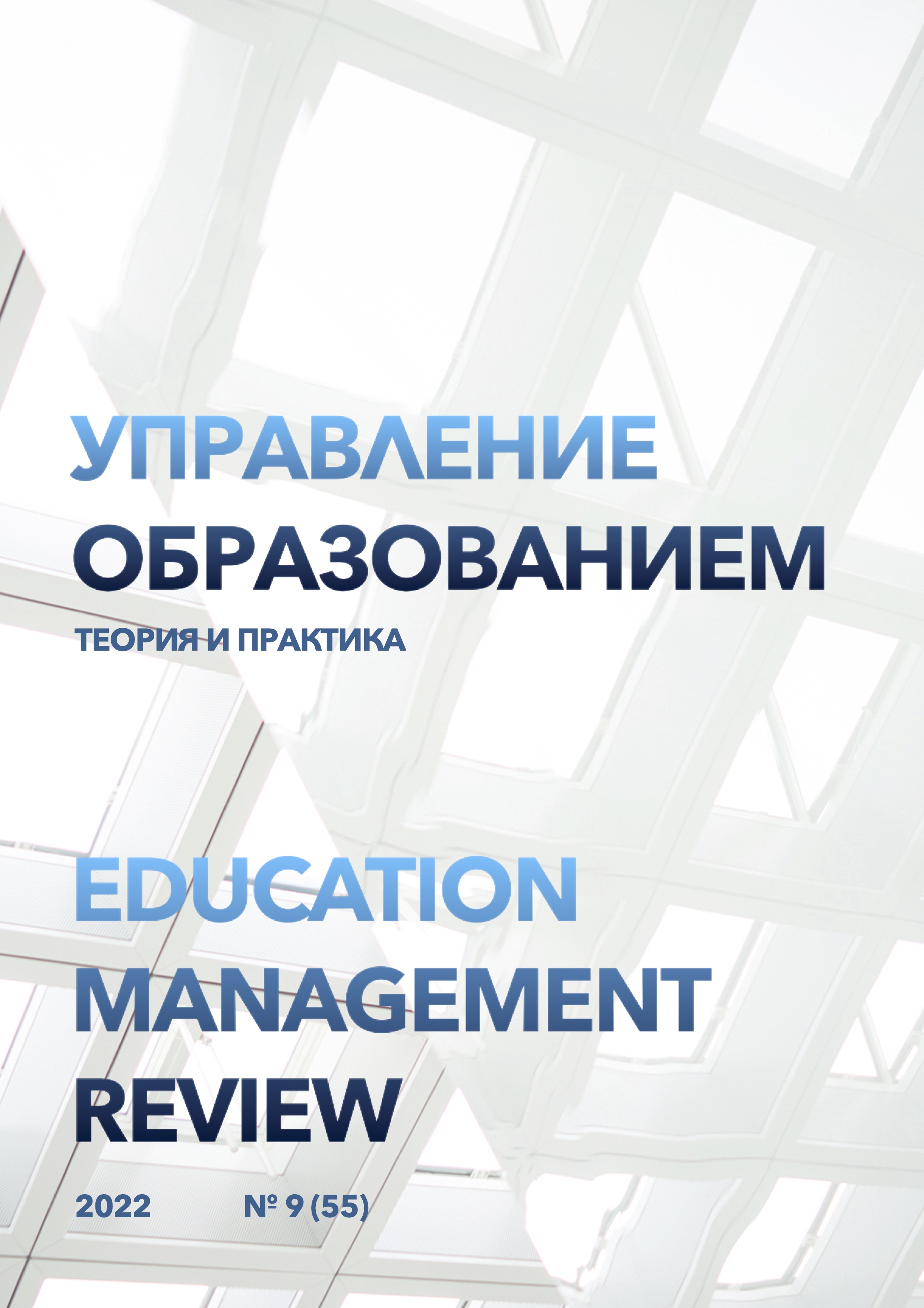Smart technologies as a priority direction of the sphere of educational services in the conditions of globalization of the world economy
DOI:
https://doi.org/10.25726/j0378-1937-4673-zKeywords:
Smart technologies, ICT, educational services, globalizationAbstract
Modern society is at the stage of changing the technological paradigm – from the mass introduction of information and communication technologies (ICT), which determines the essence of the XX century, to the era of Smart technologies, which reflects the priority direction of the development of continuing education, due to progress in production and technology, an increase in the volume of information. The integration of education, science and production is aimed at solving global problems, improving life, and making the most effective use of human resources. In countries implementing the innovative and technological type of development, knowledge becomes the main intangible asset, affects the growth of production volumes, improving the quality of products and services, ensuring the competitiveness of the country and accelerating social progress. Therefore, the formation of a person's creative potential, which is provided by the education and training system, should be effectively implemented in the mechanisms of innovation activity, which is the basis of a Smart society. An urgent problem today remains the lack of sufficient understanding of the content, directions of practical implementation and introduction of perfect innovative Smart-technology tools into the process of training future professional personnel. There is still no deep acceptance of the advantages and prospects of Smart technology products for public life in general in the Russian state. To solve this problem, it is necessary to immediately develop a state strategy for the development of Smart technologies for industries, the construction of environmentally hazardous solid waste recycling enterprises, the functioning of state-funded institutions, business structures, and educational services.
References
Абдрахманова Г.И. Что такое цифровая экономика? Тренды, компетенции, измерение : докл. к XX Апр. междунар. науч. конф. по проблемам развития экономики и общества, Москва, 9-12 апр. 2019 г. / Г.И. Абдрахманова, К.О. Вишневский, Л.М. Гохберг и др.; науч. ред. Л.М. Гохберг ; Национальный исследовательский университет «Высшая школа экономики». М.: Издательский дом Высшей школы экономики, 2019. 82 с
Арсаханова З.А. Определение возможности регионального развития культурной экономической общности // Управление образованием: теория и практика. 2022. № 4. С. 114–119. https://doi.org/10.25726/v8341-7427-9969-u
Бабич Л.В., Головчин М.А., Мироненко Е.С. Модель smart-компетенций как основа формирования человеческого капитала //Экономика образования. 2021. № 1. С. 4-17.
Ваганова О.И., Алешугина Е.А., Максимова К.А. Проектирование электронных учебных курсов // Азимут научных исследований: педагогика и психология. 2019. Т. 8. № 3 (28). С. 57-59.
Головчин М.А., Россошанский А.И. Измерение SMART-компетенций в рамках формирующего эксперимента: проверка оценочной модели // Педагогические измерения. 2021. № 1. С. 80-89.
Маркова С.М., Наркозиев А.К. Методика исследования содержания профессионального образования // Вестник Мининского университета. 2019. Т. 7. №1. С 2.
Прохорова М.П., Ваганова О.И. Участие преподавателей вуза в разработке открытых онлайн-курсов // Отечественная и зарубежная педагогика. 2019. Т. 1. № 5 (62). С. 90-103.
Рыбичева О.Ю. Концептуальные основы смарт-образования в исследованиях зарубежных и отечественных ученых //Инновации в образовании. 2019. № 12. С. 23-33.
Саетова А.Р. Использование технологий виртуальной и дополненной реальности как инструмент // Моя профессиональная карьера. 2020. Т. 3. № 11. С.103-106.
Терелецкова Е.В., Ягафонова И.М. Вопросы подготовки кадров в условиях становления цифровой среды современной экономики // Экономика и управление: научно-практический журнал. 2018. № 1 (139). С. 82-85.
Успаева М.Г., Гачаев А.М. Инвестиции в инновационные проекты на базе вузов // Управление образованием: теория и практика. 2021. № 4. С. 250–258. https://doi.org/10.25726/w6210-2850-4745-u
Хамидов О.Х., Кулишов В.В., Маманазаров М.А. Компетентносный подход в системе непрерывного экономического образования, 2019. С. 139.
Цифровая грамотность российских педагогов. Готовность к использованию цифровых технологий в учебном процессе / Т.А. Аймалетдинов, Л.Р. Баймуратова, О.А. Зайцева, Г.Р. Имаева, Л.В. Спиридонова; Аналитический центр Национального агентства финансовых исследований. М.: Издательство НАФИ, 2019. 84 с.




